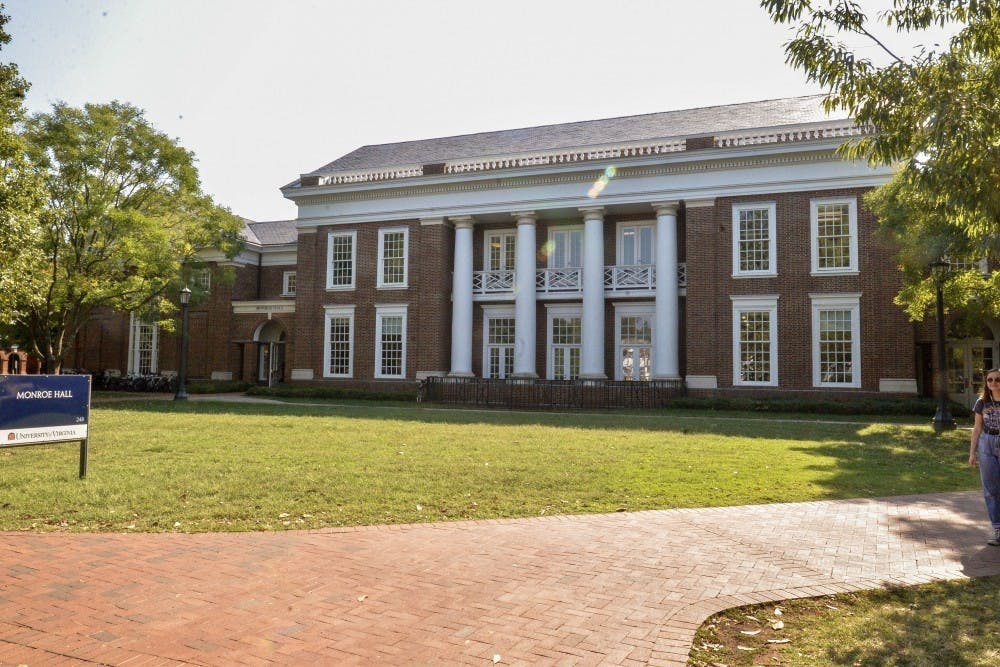中文版请点击此处
When first applying to the University, I was dismayed to find that, among the many excellent programs offered, journalism was not an option. In fact, it has been rather shockingly absent for over 100 years since the department’s unfortunate demise in 1917. It’s disappointing an institution with such a robust liberal arts reputation could fall so short in such a crucial discipline as journalism.
Students at the University ought to go out into the world as leaders, equipped with the skills necessary to tackle big issues. Thomas Jefferson himself certainly intended for this to be the case. In an 1825 letter to a friend, he wrote University students “are not of ordinary significance only; they are exactly the persons who are to succeed to the government of our country, and to rule its future enmities, its friendships and fortunes.” The University’s future doctors, lawyers and engineers may very well rule the fortunes of our country, but what of its writers?
I have previously written about the immense importance of the role journalists play in our society, emphasizing that we live in an age rife with journalistic malpractice. This is a time where writers of integrity and excellence are more crucial than ever. Why then, does the University continue to ignore such a glaring hole in its curriculum? The answer may lie in the story of the original U.V.a. School of Journalism started in 1907 by a man named Leon Rutledge Whipple.
Whipple was brilliant and extremely qualified for such an endeavor as the creation of a department, but his success was short-lived. In 1917 — only 10 years after Whipple taught his first journalism class at the University — it all came crashing down in the form of a controversial speech. Whipple was a pacifist in the face of World War I, an immensely unpopular hill to die on at the time. Because of his views, he was ostracized from the University for fear that he would tarnish its reputation and, by extension, hurt its revenue stream. With his dismissal, the School of Journalism ceased to exist, and it has never come back.
The University displayed remarkable cowardice in this act, but that is very much in the past. However, the critical issues facing the journalism industry are a problem of today, and not nearly enough is being done to address them. Just as the University bent to the power of public opinion over a century ago, it is exhibiting an exceptionally weak will in its reluctance to act on the issue of journalism education. As it seeks to expand its brand in growing markets like data and computer science, considerations of journalism and other humanities are being left in the dust. The University is putting profit before principle. It did the same thing when it canned the School of Journalism rather than face the ire of public opinion during World War I. As rival institutions such as the University of North Carolina at Chapel Hill and Washington and Lee University continue to grow the reputations of their prestigious journalism schools, the University sits idly by, content to offer only a few journalistic writing courses within the Media Studies department.
The journalism course offerings within the Media Studies department are meagre. They provide a few relevant classes such as Sports Journalism and News Writing, but not much beyond that. While it is a truly excellent department, Media Studies simply doesn’t do enough. Students at the University can take classes teaching us how to effectively examine media, but not how to create it. As I pursue my interest in journalism despite the lack of opportunity offered to me by the University, I often feel unequipped to handle some of the larger issues facing me as I write. A more comprehensive course offering in classes designed to teach how to think and write like a journalist would certainly be beneficial.
During my time at the University I have found that there are many other avenues which students seeking to improve their writing and critical thinking skills can take. Writing for The Cavalier Daily has been an immensely positive experience for myself and many others. Summer internships at newsrooms across the nation are there for the taking. In the end though, it is disappointing that the University itself isn’t doing more to formally train the next generation of journalists. In a world increasingly devoid of truthful reporting, the University is missing a golden opportunity to make its mark.
Thomas Laughridge is an Opinion Columnist for The Cavalier Daily. He can be reached at opinion@cavalierdaily.com.
The opinions expressed in this column are not necessarily those of The Cavalier Daily. Columns represent the views of the authors alone.







